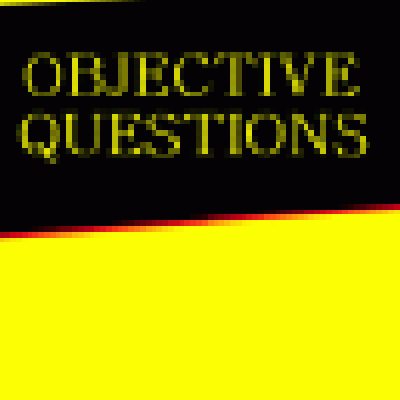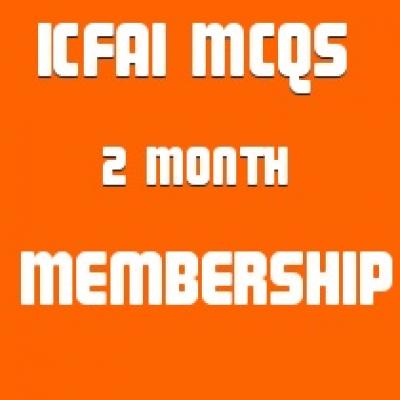LIS16101 Methodology of Research and Statistical Techniques
Price:
Rs600
LIS16101 Methodology of Research and Statistical Techniques SOLVED PAPERS AND GUESS
Product Details: LIS16101 Methodology of Research and Statistical Techniques
Pub. Date: NEW EDITION APPLICABLE FOR Current EXAM
Publisher: MEHTA SOLUTIONS
Edition Description: 2018-19
RATING OF BOOK: EXCELLENT
ABOUT THE BOOK
FROM THE PUBLISHER
If you find yourself getting fed up and frustrated with other nims University book solutions now mehta solutions brings top solutions for nims LIS16101 Methodology of Research and Statistical Techniques book contains previous year solved papers plus faculty chapterwise notes important questions and answers specially for nims University .questions and answers are specially design specially for nims University students .
Please note: All products sold on mbabooksindia.com are brand new and 100% genuine
- Case studies solved
- New addition fully solved
- last 5 years solved papers with current year plus guess
FULLY SOLVED BOOK LASY 5 YEARS PAPERS SOLVED PLUS GUESS
METHODOLOGY OF RESEARCH AND STATISTICAL
TECHNIQUES – LIS16101
UNIT CONTENTS
1
Research Methodology- Introduction, what is research, concept of research, relationship
between common sense and scientific framework, sociology: An interplay between them,
applied research, pure research, scientific methods and its basic elements, the concept as
abstraction, concepts and communication, definition and communication Problems, research
as a concept of developing knowledge, research characteristics, research and its kinds,
research and the role of intuition in it.
2
Research Questions, Data Collection and Content Analysis- Hypotheses and Research
Questions - Introduction, Qualitative research questions, quantitative research questions and
hypotheses, designing research, , a model for descriptive questions and hypotheses, .
Primary and secondary data - introduction, information sources used in marketing research,
evaluating secondary data, designing the data collection project. Sampling - Introduction,
probability samples and convenience samples, types of probability samples, evaluating
samples, other considerations, samples in social and behavioural research, types of
sampling.
Data collection methods - introduction, types of data, importance of data, sources of data,
use of secondary data, methods of collecting primary data: General, Methods of primary
data collection, choice of methods of data collection, observation, meaning and importance,
applications, simulation, meaning.
Interviewing - types of interviews, interviewing process, panel method, characteristics, types
of panels, mail survey, projective techniques, types of projective techniques, data collection
tools, types of tools, functions, observation schedule, interview guide, interview schedule
and mailed questionnaire (Both these tools are widely used in surveys), Rating scale,
checklist, schedule for institutions, construction of schedules and questionnaires, schedule v.
questionnaire, the process of construction, question construction, question relevance and
content, question wording, response form or types of questions, types of questions to be
avoided, question order or sequence, mechanics of the schedule and questionnaire,
concluding remarks, measurement scales and indices, pilot studies and pre-tests.
Content analysis - introduction, uses of content analysis, types of content analysis, issues of
reliability and validity, advantages of content analysis, disadvantages of content analysis,
survey methods, types, instrument design, representative sampling, modes of data collection,
how to write good survey questions, response formats, advantages and disadvantages of
surveys, non-response reduction, other methods to increase response rates, public opinion
surveys.
Data processing - introduction, editing, classification and coding, categorization and
classification, coding. Transcription - introduction, methods of transaction, tabulation,
electronic computers, construction of tables, components of a table, principles of table
construction, frequency distribution and class intervals, analysis and interpretation of data,
drawing conclusions and recommendations, graphic representations, meaning and
importance types and general rules.
3 Research Design- Why is methodologically designed research needed, literature survey,MASTER OF LIBRARY & INFORMATION SCIENCES
exploratory or formulative studies design, experience survey, insight-stimulating cases and
their analysis, descriptive and diagnostic studies design, experimental study designs,
experiment and its basic outline, randomization, matching, the after only experimental
design, the before after experiments.
4 Research Report- Introducing a research report, design of study and its method, study and
the result of it, discussion, summary or abstract, reference, appendix, the report style.
5
Statistical Designs- Measures of central tendency - introduction, mean (Arithmetic) when
not to use the mean, median, mode, skewed distributions and the mean and median, when to
use the mean, median and mode.
Standard deviation - definition of population values, discrete random variable, continuous
random variable, estimation, with standard deviation of the sample, other estimators,
confidence interval of a sampled standard deviation, identities and mathematical qualities,
interpretation and application, application examples, geometric interpretation, Chebyshev’s
inequality, rules for normally distributed data, relationship between standard deviation and
mean, rapid calculation method, weighted calculation.
Level of measurement - introduction, why is level of measurement important? Test of
reliability and validity, reliability and validity in Quantitative research, reliability, validity,
testing validity and reliability, footnotes, indexes and biography.
1. Books by courier
2. Delivery in 5-7 days
3. Courier india only
4. Rating of product : largest selling






